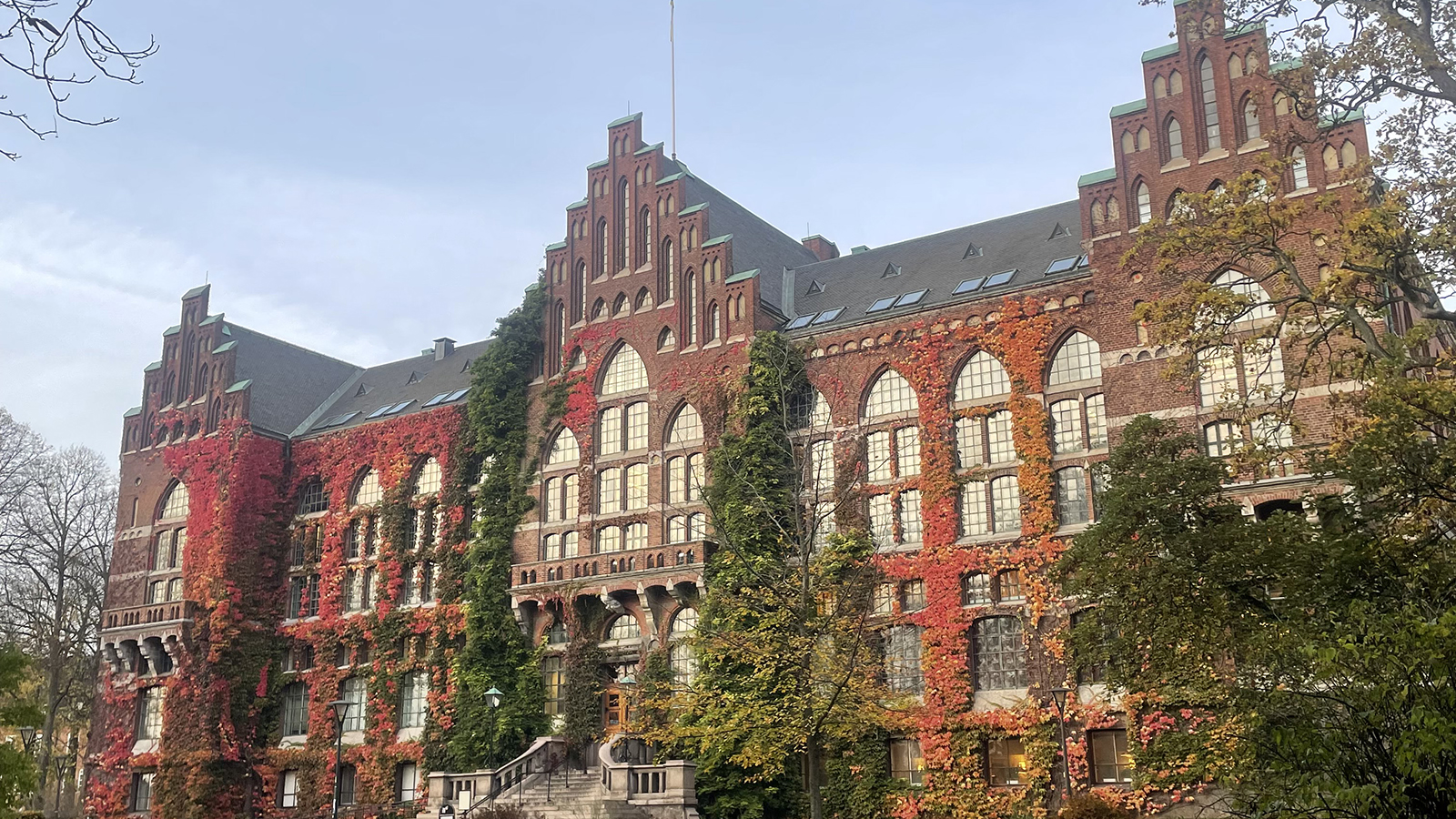●Why did you want to study abroad in Japan? / なぜ日本に留学しようと思ったのですか。
Because I’ve always been fascinated by Japan and its language and culture that I enrolled in Japanese studies and wanted to learn more by being in Japan, studying here and experiencing Japanese culture firsthand in everyday life.
私は(自国大学の)Japanese Studies に入って日本とその言語、文化にずっと魅了されていて、日本で滞在し日常生活で日本文化を直接経験しながらもっと学びたかったからです。
●Why did you choose Tokushima University for your studying abroad? / 徳島大学を選んだ理由は何ですか。
Because the JASSO scholarship can cover all my necessary life costs compared to other cities, because my university does not offer a lot of exchange options for Japan and because this is the only option I had if I wanted to study in Japan for a year and not less.
JASSO奨学金が他の都市と比べて生活に必要な費用をカバーしてくれるのと、自国の大学に日本の交換留学の選択があまりなかったからです。1年間かそれ未満で日本への留学をしたい場合、ここが唯一の選択でした。
●What subject have you been studying in your home university? / 自国では何を勉強していましたか。Japanese studies such as Japanese Language, Literature, Linguistics and History.
日本語、文学、言語学や歴史などの日本語研究です。
●How did you prepare for studying in Japan? / 日本留学に向けてどのような準備をしましたか。
I asked other students at my home university for advice and I worked a lot in order to save enough money for the trip and my first month living without a scholarship.
自国の他の学生にアドバイスを聞いたり、旅行や奨学金がでない最初の月のためにたくさん働いてお金を貯めたりしました。
●How was your experience in Tokushima? For example, was there anything that surprised you? / 徳島に来てどうでしたか。例えば、驚いたことはありますか。
All in all, it was a very good experience. The garbage and recycling system in Japan, however, is something that surprised me negatively because of its absurdity and impracticality. I also find the extensive bureaucracy to be unnecessary and troublesome, as well as everything being in paper form and not digitalized.
全体的にすごく良い経験でした。しかしながら、生ごみとリサイクルシステムは不条理と非実用性から否定的に驚きました。また広範な官僚制度は、全てがデジタル化ではなく紙媒体なのもあり不要で面倒でした。
●Have you used the Culture Lounge while you are in Tokushima University? How did you like using Culture Lounge? / 徳島大学ではカルチャー・ラウンジは利用しましたか。また、利用してどうでしたか。
I tried going there in the very beginning with the hope of mingling with other international and Japanese students and making friends but soon realized that there was only a select few Japanese students that would always be in the culture lounge and I very much disliked their general attitude towards everyone outside of their little clique. Which explains why all other Japanese students stay away from the Culture Lounge, as did I due to the fact that I wished not to be exploited as a mere western accessory and convenient English teacher by those who frequent the Culture Lounge nor did I desire to be in such a toxic environment full of hypocrites.
最初のころは他の留学生や日本人学生と交流し友達を作るためにカルチャーラウンジへ行きましたが、すぐにそこにいるのは限られた日本人学生だけで、グループ以外の人に対して彼らの態度がとても嫌でした。これが他の日本人学生がカルチャーラウンジから離れていく理由です。私はカルチャーラウンジにいる人の単なる西洋のアクセサリーや便利な英語の教師になりたくなかったし、偽善者でいっぱいの毒々しい環境には居たくありませんでした。
●How was your learning experience with courses at Tokushima University? / 徳島大学での勉強(受講)はどうでしたか。
Very good, although I dislike the Japanese form of testing knowledge by means of memorization without any thinking or understanding of the subject.
とても良かったですが、課題を理解したり考えることなく暗記の知識でテストをする日本の形式が好きではありません。
●Are there any big differences with student life in Tokushima and the country where your university is? / 学生生活について、日本と自国とでは大きな違いがありますか。
I think student life in my country has more freedom and time for enjoyment. Also, at my university we do not have any clubs, so I really wanted to join activity circles at TU.
自国での学生生活がもっと自由で楽しむ時間があると思います。また、私の大学はクラブがないので徳島大学ではクラブ活動にとても参加してみたかったです。
●What did you get an impact out of the most in your life of Japan or Tokushima? / 日本(徳島)での生活で一番印象深いものは何ですか。
All the field trips and cultural experiences the university advertised and provided in the first semester before the pandemic. I discovered a lot about Tokushima, Japan and even decided to embark on the Shikoku Pilgrimage myself and complete it after attending an excursion about the Henro.
新型コロナウイルス感染拡大前の前学期で行った遠足や文化的経験など全てです。徳島、日本についてたくさん発見しました。遍路旅行に参加したあと、自分で四国巡礼をやり遂げることに決めました。
●What is your goal in the future? / 将来の目標は何ですか。
Finish my university studies at home and come back to Japan and/or find a job in which I can use my linguistic abilities for projects of international cooperation.
自国の大学課程を修了し、日本に戻って来て国際協力プロジェクトで自分の言語力を使う仕事を見つけたいです。
●Could you leave advice to students who want to study abroad in the future? / 留学を考えている学生に向けてアドバイスをお願いします。
●Make sure to save up enough money and always have a lot of extra money while in Japan because the scholarships would often not be paid on time, extending the delay of payment for up to over two months.
●Do not take the university’s bedding and sheets, as they are of bad quality for the price you pay and if you live in Nichia Kaikan you will not need them, merely bring your own sheets or buy new ones for a reasonable price, including a pillow if you do not bring your own.
●If you are male, do not apply for the dormitory. Kitajima dorm is very far and in terrible condition and the low price is not worth it. Ask for help for finding an apartment in the international office. Same goes for female students that get assigned to Kitajima dormitory.
●Apply and join the field trips and excursions the university offers, as well as intercultural courses for the experiences and knowledge they provide.
●Feel free to join a club, you will be able to mingle with Japanese people this way and enjoy your common interest together.
〇奨学金は期限までに支払われないことがしばしばあり、最大2か月まで支払いが遅れることがあるので、十分な貯蓄をして日本にいる間は多めにお金を持っておいてください。
〇価格に対して質が悪く、また日亜会館に住む場合は必要ないので大学から寝具やシーツを購入しないでください。シーツは持参するか、持って来なくても枕も含めて安く新しいものが購入できます。
〇もし男性でしたら寮の申請をしないでください。北島の寮はとても遠くひどい状態で低価格の価値はありません。国際課でアパートを探すお手伝いをしてもらってください。北島の寮に配属された女性の方も同様です。
〇大学が提供する遠足や、経験や知識のための異文化科目には申請して参加してください。
〇クラブ活動には参加してください。日本人の方と共通の興味を一緒に楽しみ交流することが出来ます。

